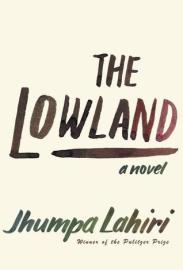The Girl Who Drank the Moon by Kelly Barnhill
Winner of the 2017 Newberry Medal, The Girl Who Drank the Moon by Kelly Barnhill is a must read for any fans of fairy tales and fantasy. Barnhill weaves together pieces of many genres, creating a story reminiscent of classic fairy tales, yet at the same time all its own. The many elements this story explores are difficult to adequately explain, but let it suffice to say that at its heart, The Girl Who Drank the Moon is a story about the power of love and family (both born and chosen) and illustrates the very best that fairy tale and fantasy storytelling has to offer.

 If we were to believe the media, summer reading is a time for light beachy reads. Thrillers, romance and other guilty pleasures seem to fall in this category. I fall strictly into the camp that you can read anything you want at any time, but one thing we can agree on? It isn’t summer anymore! So maybe it is the perfect time for a literary read. Literary fiction is often denser, more lyrical and the characters spend less time doing things and more time reflecting or reacting to things. They can be beautiful to read, have complex issues, but also sometimes dark and sad. Warning: literary fiction books often have open or ambigious endings! You will be in for a surprise if you normally read romance or mysteries.
If we were to believe the media, summer reading is a time for light beachy reads. Thrillers, romance and other guilty pleasures seem to fall in this category. I fall strictly into the camp that you can read anything you want at any time, but one thing we can agree on? It isn’t summer anymore! So maybe it is the perfect time for a literary read. Literary fiction is often denser, more lyrical and the characters spend less time doing things and more time reflecting or reacting to things. They can be beautiful to read, have complex issues, but also sometimes dark and sad. Warning: literary fiction books often have open or ambigious endings! You will be in for a surprise if you normally read romance or mysteries.